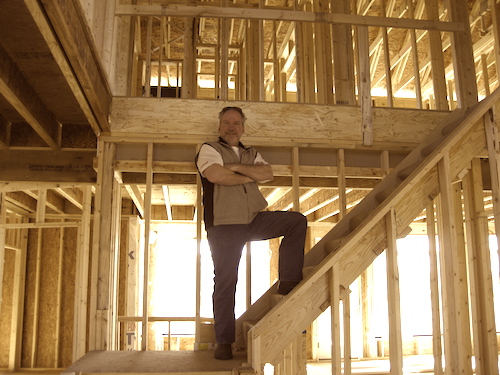 When a Charlottesville area buyer wants to go the new construction route there are several factors to consider. While an existing house can be inspected and everything is already in view, it can be difficult to picture exactly what you think you’re going to get with a brand new home.
When a Charlottesville area buyer wants to go the new construction route there are several factors to consider. While an existing house can be inspected and everything is already in view, it can be difficult to picture exactly what you think you’re going to get with a brand new home.
Sometimes, what you see in the builder’s furnished model is not what you get for the advertised base price. A builder is trying to entice buyers by filling the model house with “must-have” features that enhance the basic house. The over the top chef’s gourmet kitchen, the four-foot extension that makes the great room feel more spacious, the bamboo or other eco-hardwood floors, and the oversized windows that give character to the front rooms and create better curb appeal are all optional upgrades.
When these costs are added in, the seemingly affordable $300,000 advertised base price quickly grows to $400,000 or even more, far above what a typical buyer can afford.
When you check out a more affordable version of the model — a nearly completed house down the street that has only $40,000 worth of upgrades — it’s not the same house that has become the stuff of your dreams.
With new construction – keep your budget in mind
Had you been working with an experienced Solutions agent, you would have avoided such a let down of an experience, because the agent would have directed you to new construction that fit your budget in the area where you want to live. As you toured models together, the agent would have helped you distinguish the upgrades from the basic house and pointed out the options that are better choices for a growing family.
Though option choices never come up in a resale transaction, they are central in a new-home purchase because the basic house is almost always very much just that. The challenge is to keep option choices to an affordable limit, around 15 to 20% of the base price.
If your total budget is $300,000, for example, you should be looking at houses that are base-priced about 15 to 20% lower, or about $240,000. That would give you $60,000 for options, an amount that would seem to cover everything you might want, but, in fact, will not go very far.
When choosing specific options, try to get features that will be difficult or costly to add later; in our earlier example, this would be the four-foot great room extension and the extra large windows on the front. The chef’s kitchen and the hardwood flooring can be future remodeling projects, and some options should be taken out completely because they will not translate into a better resale price.
In addition to helping buyers negotiate the purchase, your Solutions agent will also advise buyers about the cost of new-home ownership — a concern a builder’s agent is unlikely to mention. For example, once you move in, you’ll realize that you’ll have to maybe put up a fence and extensive landscaping or purchase window treatments because the neighbors will be closer than you realized.
And, as we mentioned in a previous blog, your Solutions agent can research what will happen to any vacant land near the new construction.
So, why don’t most new-home buyers use real estate agents to help them navigate a brand-new house purchase?
It requires planning ahead, and most new-home purchases begin spontaneously when the buyers chance upon a “Grand Opening” for a new-home development and stop to take a look. When asked to “register” by the model sales agent, they fill out a card with their name and contact information.
Should the buyers then decide, after the fact, to bring an agent on board, the builder may demand that the buyer pay the agent’s fee, usually 2 to 3% of the base price. (Although this is not the norm, it has happened)
We have discovered that very few buyers looking at construction know that they are allowed or are encouraged to have buyer representation. What a model sale agent is paid has nothing to do with whether there is another agent working with the buyer and a buyer doesn’t get a discount because they don’t have their own representation.
When a buyer is looking at new construction they may not realize how the builder contract is geared 100% towards the builders rights and very few for the buyer. Builders usually tie incentives to the use of their mortgage company and title company.
To get the real estate agent’s help and have the builder pay the agent’s fee, the agent must register the buyers on their initial visit. But if, as a buyer, you visit the model and decline to register, you should be able to return later with your Solutions agent.
If you have any questions regarding how to get proper representation while building, do not hesitate to ask.

